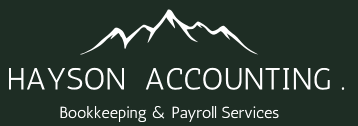Navigating GST/HST in British Columbia: A Small Business Guide
Navigating GST/HST in British Columbia: A Small Business Guide
As a small business owner in British Columbia, understanding the Goods and Services Tax (GST) and the Harmonized Sales Tax (HST) is essential to your financial management and compliance. While navigating the complexities of these taxes might seem daunting, having a clear grasp of how they work can save you time and money. This guide aims to provide you with a comprehensive overview of GST/HST and how it impacts your business.
What is GST and HST?
In Canada, the Goods and Services Tax (GST) is a federal tax that applies to most goods and services sold in the country. The GST rate is currently set at 5%. In many provinces, including British Columbia, the federal GST is combined with a provincial sales tax to form the Harmonized Sales Tax (HST). However, BC currently does not use HST; instead, it has its own provincial sales tax (PST) at 7%, which is applied alongside GST.
Who Needs to Register for GST?
If your business generates more than $30,000 in revenue over four consecutive calendar quarters, you are required to register for a GST number with the Canada Revenue Agency (CRA). This threshold applies to most businesses, regardless of their structure (corporation, sole proprietorship, etc.). Even if you are below this threshold, you may still want to register voluntarily to claim input tax credits (ITCs) on your purchases.
Charging GST
Once registered, you are required to charge GST on your taxable supplies. This includes most products and services you sell but excludes some exempt supplies such as certain financial services, health care services, and educational services.
- Collecting GST: Add 5% GST to your sales price when invoicing customers. Ensure to clearly indicate the tax on customer invoices.
- Issuing Receipts: Provide customers with receipts that show the GST charged. This helps them claim any potential input tax credits if they are also registered for GST.
Input Tax Credits (ITCs)
One of the significant benefits of registering for GST is your ability to claim Input Tax Credits. ITCs allow businesses to recover the GST paid on business-related purchases and expenses. To claim ITCs:
- Ensure that you retain all receipts and invoices that show the GST you paid.
- Keep accurate records of your sales and purchases.
When you file your GST return, you can deduct the total ITCs from the GST you owe, potentially leading to a refund if your ITCs exceed your GST collected.
Filing GST Returns
GST filings must be done periodically, either annually, quarterly, or monthly, depending on your revenue and preferences. Here’s how to approach the filing process:
- Choose your filing frequency: Small businesses typically opt for annual filing, which may simplify your tax obligations. However, if you expect to have significant GST to pay or claim back, more frequent filings may be beneficial.
- Complete your GST return: Report your total sales, the GST collected, and the ITCs you are claiming. Be sure to keep thorough records as the CRA may require them for review.
- Submit on time: Late submissions can result in penalties or interest charges. Set reminders ahead of your filing dates to ensure compliance.
Understanding PST in British Columbia
In addition to GST, BC businesses must also be aware of the Provincial Sales Tax (PST). PST is a separate tax that applies to the sale of goods and services and has a rate of 7%. Here are key points to consider regarding PST:
- Registration: If you sell taxable goods or services in BC, you may also need to register for PST.
- Collecting PST: Similar to GST, PST must be collected from customers on applicable sales.
- Filing PST Returns: PST returns are filed separately from GST returns, and the frequency is similar.
Conclusion
Navigating GST and PST in British Columbia doesn't have to be overwhelming. By understanding your obligations and taking advantage of resources available, you can maintain compliance and optimize your financials. Hiring a professional accountant can further simplify the process, ensuring that you maximize your credits and minimize your liabilities.
Make sure to stay up to date with any changes to tax regulations and seek guidance when needed. Doing so will ensure that your business remains compliant and positioned for success in the competitive market of British Columbia.








